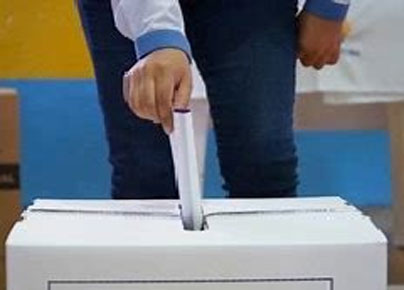Ecuador to hold referendum on crime and economy
2024-01-26

Ecuadorian President Daniel Noboa's administration plans to hold a referendum on crime, justice and economic issues in the first half of the year. Although Noboa said in a television interview that he hopes it will be held on March 10, that date seems optimistic because the constitutional court, which is currently studying the questions to be put to the public, has yet to rule on the constitutionality of the referendum. Once the questions have been defined, the National Electoral Council C.N.E. has two weeks to call the referendum and up to 60 days to complete the process.
"Several steps must be followed, including the finance ministry establishing the budgetary items and carrying out contracting through the public procurement portal, among others that require time. If the court's ruling comes out by the end of this month, the referendum could take place in late April or early May," C.N.E. member José Cabrera told the media.
Noboa sent two packages containing 20 questions to the constitutional court but recently decided to withdraw one on allowing the establishment of casinos, betting rooms and gambling games in Ecuador. These activities were banned after a 2011 referendum during the government of Rafael Correa.
Noboa said he hoped the constitutional court would approve the 19 questions soon.
The remaining questions include issues related to reforms of the organization and operation of the armed forces to combat national and transnational organized crime; heavier sentences for crimes such as terrorism, drug production and trafficking, organized crime, contract killings, money laundering and illegal mining; allowing the extradition of Ecuadorans to face charges abroad; stripping criminals of assets of illicit origin; reforming contracting; and declaring areas of "national interest" to combat illegal mining.
Local analysts say that, if approved, several of the questions will require bills or legal reforms to be submitted to the national assembly, which would have the power to approve or reject them, undermining the supposedly binding nature of referendums in Ecuador.









